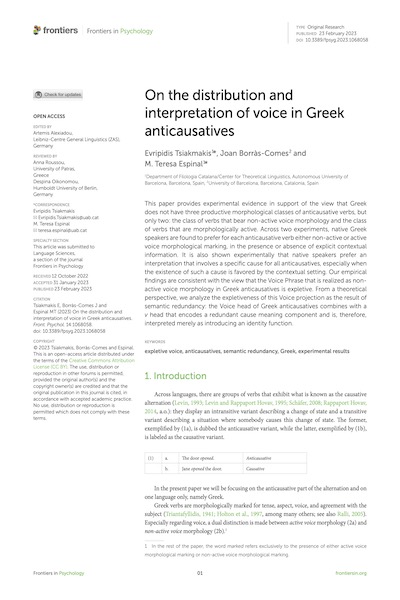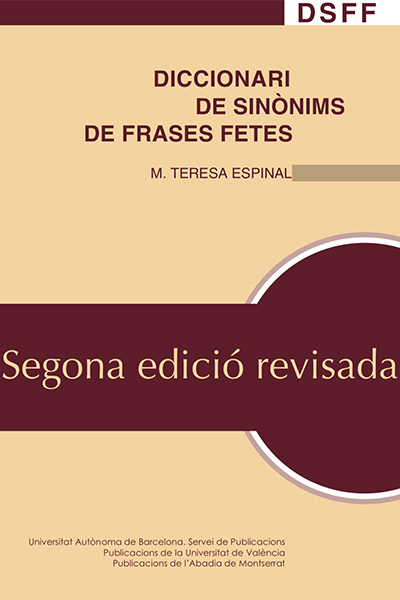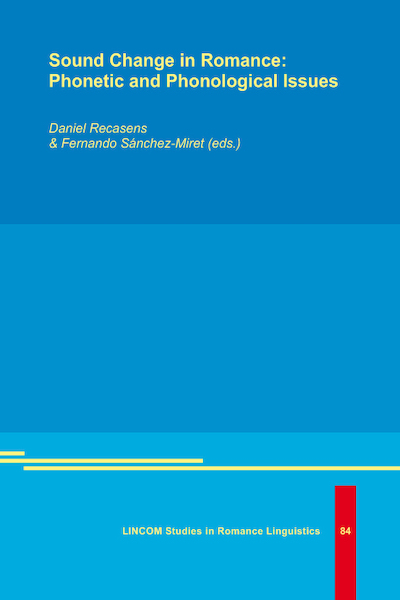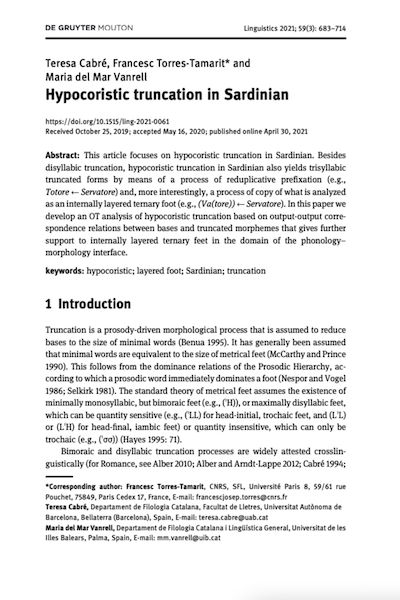
Autors:
Evripidis Tsiakmakis, Joan Borràs-Comes i M.Teresa EspinalTítol:
On the distribution and interpretation of voice in Greek anticausatives. Frontiers in PsychologyEditorial: Frontiers
Data de publicació: 23 de febrer del 2023
Pàgines: 15
Text complet
This paper provides experimental evidence in support of the view that Greek does not have three productive morphological classes of anticausative verbs, but only two: the class of verbs that bear non-active voice morphology and the class of verbs that are morphologically active. Across two experiments, native Greek speakers are found to prefer for each anticausative verb either non-active or active voice morphological marking, in the presence or absence of explicit contextual information. It is also shown experimentally that native speakers prefer an interpretation that involves a specific cause for all anticausatives, especially when the existence of such a cause is favored by the contextual setting. Our empirical findings are consistent with the view that the Voice Phrase that is realized as non-active voice morphology in Greek anticausatives is expletive. From a theoretical perspective, we analyze the expletiveness of this Voice projection as the result of semantic redundancy: the Voice head of Greek anticausatives combines with a v head that encodes a redundant cause meaning component and is, therefore, interpreted merely as introducing an identity function.










